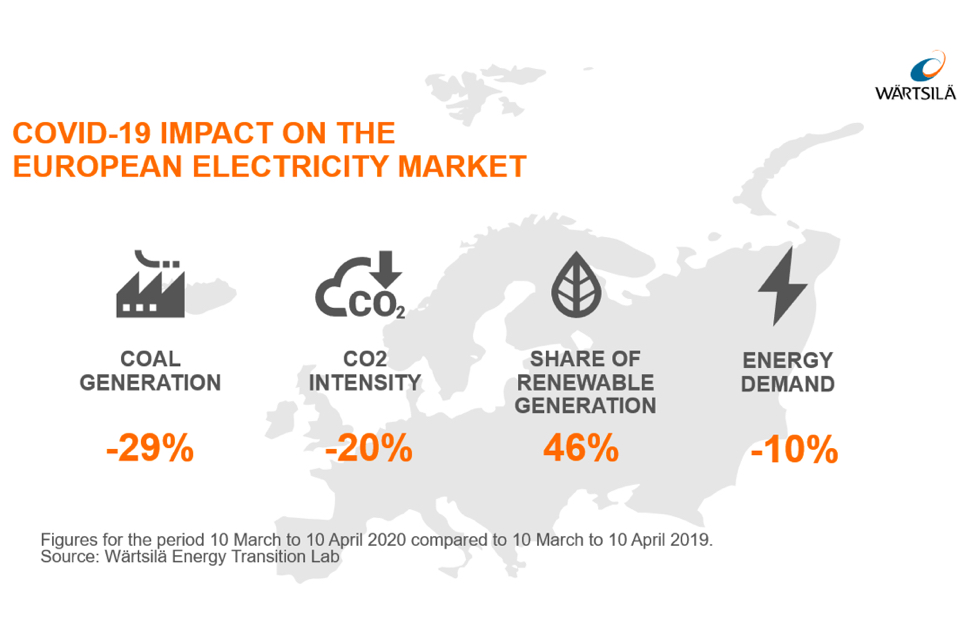The response to Covid-19 has allowed renewable energy to reach a 43 per cent market share in the European Union and United Kingdom. The figures mark a dramatic shift in Europe’s energy mix – one that was not anticipated to occur until the end of the decade.
‘The impact of the Covid-19 crisis on European energy systems is extraordinary,’ says Björn Ullbro, Vice President for Europe & Africa at Wärtsilä Energy Business. ‘We are seeing levels of renewable electricity that some people believed would cause systems to collapse, yet they haven’t – in fact they are coping well. The question is, what does this mean for the future?’
‘What we can see today is how our energy systems cope with much more renewable power – knowledge that will be invaluable to accelerate the energy transition,’ he adds.
Coal based power generation drops
Coal based power generation has fallen by over a quarter (25.5 per cent) across the European Union (EU) and United Kingdom (UK) in the first three months of 2020, compared to 2019. The impact is even more stark in the last month, with coal generation collapsing by almost one third (29 per cent) between 10 March and 10 April compared to the same period in 2019, making up only 12 per cent of total EU and UK generation. By contrast, renewables delivered almost half (46 per cent) over this period – an increase of eight per cent compared to 2019.
In total, demand for electricity across the continent is down by one tenth due to measures taken to combat Covid-19, to its lowest level since the Second World War. The result is an unprecedented fall in carbon emissions from the power sector, with emission intensity falling by almost twenty per cent compared to the same 10 March to 10 April period last year.
The analysis comes from the Wärtsilä Energy Transition Lab, a new free-to-use data platform developed by Wärtsilä to help the industry, policy makers and the public understand the impact of Covid-19 on European electricity markets and analyse what this means for the future design and operation of its energy systems. The goal is to help accelerate the transition to 100 per cent renewables.
Shift seen now was not expected for the next ten years
The figures mark a dramatic shift in Europe’s energy mix – one that was not anticipated to occur until the end of the decade. The impact of the Covid-19 crisis has effectively accelerated the energy transition in the short-term, providing an opportunity to see how energy systems function with far higher levels of renewables.
‘Electricity demand across Europe has fallen due to the lockdown measures applied by governments to stop the spread of the coronavirus,’ explains Ullbro. ‘However, total renewable generation has remained at pre-crisis levels with low electricity prices, combined with renewables-friendly policy measures, squeezing out fossil fuel power generation, especially coal. This sets the scene for the next decade of the energy transition.’
Picture: Covid-19 impact on the European electricity market for the period 10 March to 10 April 2020 compared to 10 March to 10 April 2019 (by Wärtsilä).








